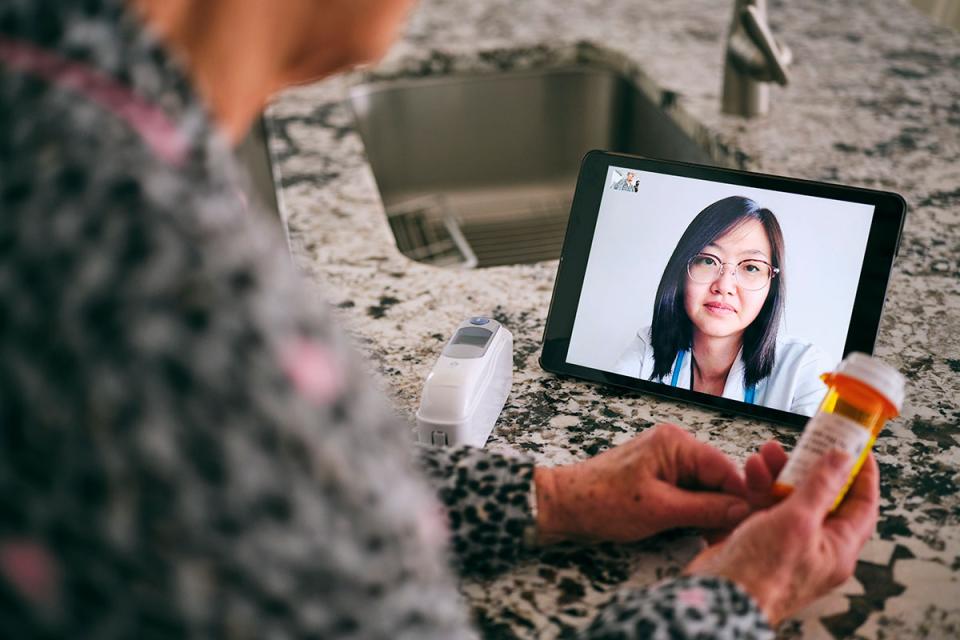Q. What is your biggest concern about people delaying care?
A: Our goal is to prevent disease or to treat it as early as possible. In some cases, not getting medical care can be life-threatening. Unfortunately, I’ve heard of patients not going to the emergency room despite having heart attack or stroke symptoms, which is very concerning.
For people with chronic conditions, having high blood sugar or high blood pressure may increase the risk of complications if they become sick for any reason, including an illness with the coronavirus. Many chronic diseases can effectively be addressed by a telemedicine visit.
The good news is that there is a lot that people can do to stay as healthy as possible by doing preventive screenings, like mammograms and colonoscopies, getting physicals and vaccines, and seeing their doctor if they have any new concerns. If people have conditions that may put them at higher risk, they should ask their doctor for additional guidance about coming in for preventive visits.
Q. What types of appointments can be done over video or the phone?
A: One positive thing that has come out of this is our ability to provide care virtually. Any type of visit that doesn’t require a physical examination can be done over video or phone. Some of the most common things we see using telemedicine are:
- Routine chronic disease management, including diabetes, asthma, COPD and high blood pressure
- Pink eye
- Medication checks and refills
- Seasonal allergies
- Some rashes or other skin issues, like shingles
- Stress, anxiety, and depression
- Test result review
- Upset stomach or heartburn
- Urinary tract infections
- Weight loss or nutrition consultations
Q. When should someone go to a clinic or hospital for care?
A: If they have any new concerns or something where the doctor needs to do a physical examination, it’s best to come in for care. If they're not sure, the doctor’s office and can direct them to the best place for care. The common reasons for in-person visits are:
- Abdominal pain
- Annual physicals
- Vaccines
- Routine vaccinations for children up to age 5 and middle school
- Adult immunizations, especially the pneumonia vaccines for people who are 65 or older or who have a chronic condition
- Deep cuts, especially those that are considered "dirty," like cuts that happen around water or outside
- Ear pain
- Joint injections or pain; possible fractures
- Lung nodule follow-up and routine cancer screening exams, including colonoscopies and mammograms
- Testing, such as blood tests or an EKG
- Imaging exams such as X-rays, CT scans or MRI
- Life-threatening symptoms
Q. What are life-threatening symptoms that people should not ignore?
A: Anything that could be a symptom of a heart attack or stroke needs to be seen right away. The sooner a person is seen, the better in these situations. Call 911 for:
- Chest pain, palpitations or dizziness
- Stroke symptoms – Remember BE FAST: Balance, Eyesight, Facial drooping, Arm weakness, Speech difficulties and Time. Also, look for sudden balance problems.
We understand that many people are anxious about receiving care. When I see patients, either virtually or in person, they tell me that it gave them peace of mind to connect with me during this challenging time. It also gives me that same peace of mind to know that I can help people get the care they need.
